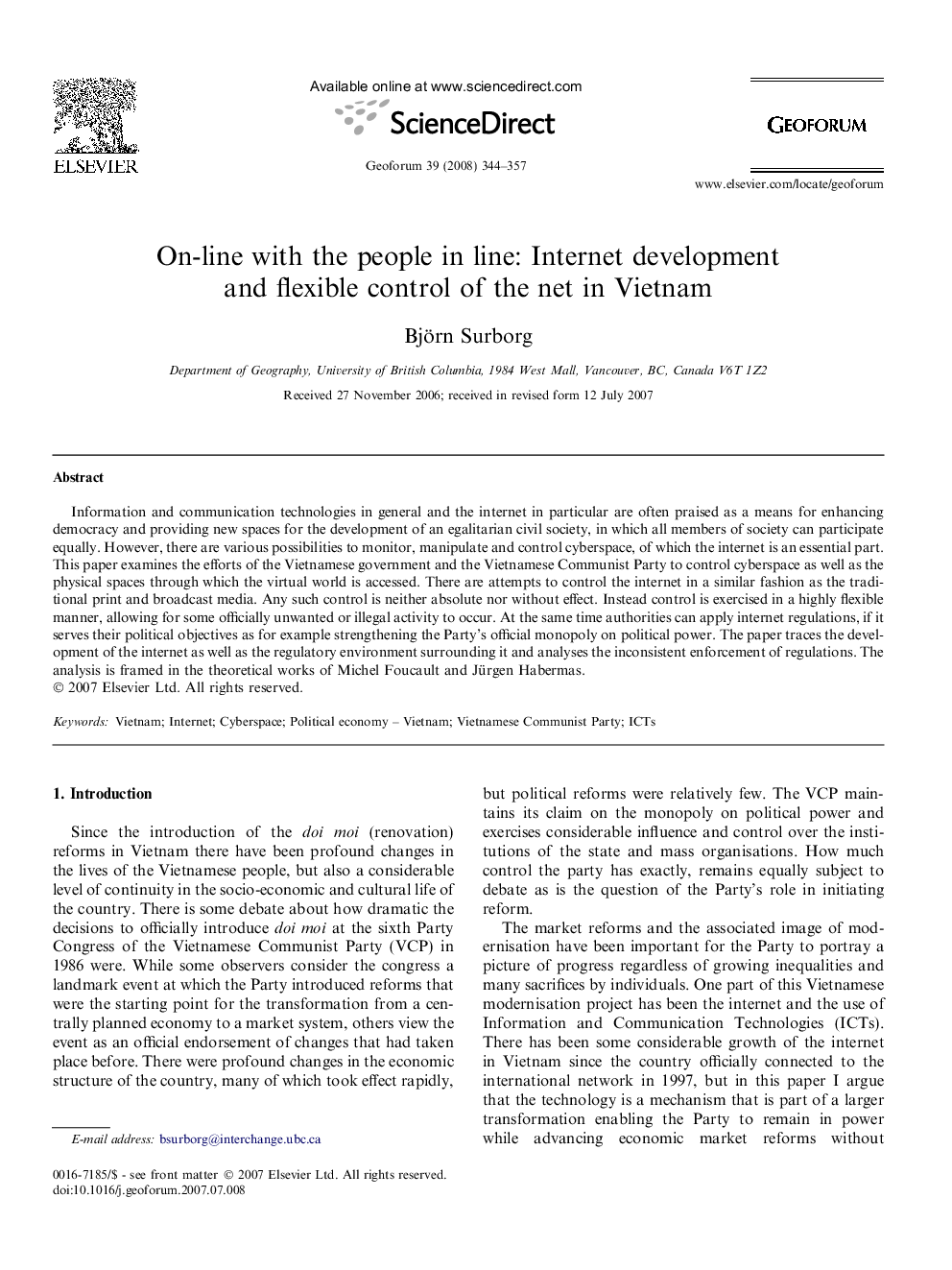| Article ID | Journal | Published Year | Pages | File Type |
|---|---|---|---|---|
| 5074983 | Geoforum | 2008 | 14 Pages |
Information and communication technologies in general and the internet in particular are often praised as a means for enhancing democracy and providing new spaces for the development of an egalitarian civil society, in which all members of society can participate equally. However, there are various possibilities to monitor, manipulate and control cyberspace, of which the internet is an essential part. This paper examines the efforts of the Vietnamese government and the Vietnamese Communist Party to control cyberspace as well as the physical spaces through which the virtual world is accessed. There are attempts to control the internet in a similar fashion as the traditional print and broadcast media. Any such control is neither absolute nor without effect. Instead control is exercised in a highly flexible manner, allowing for some officially unwanted or illegal activity to occur. At the same time authorities can apply internet regulations, if it serves their political objectives as for example strengthening the Party's official monopoly on political power. The paper traces the development of the internet as well as the regulatory environment surrounding it and analyses the inconsistent enforcement of regulations. The analysis is framed in the theoretical works of Michel Foucault and Jürgen Habermas.
